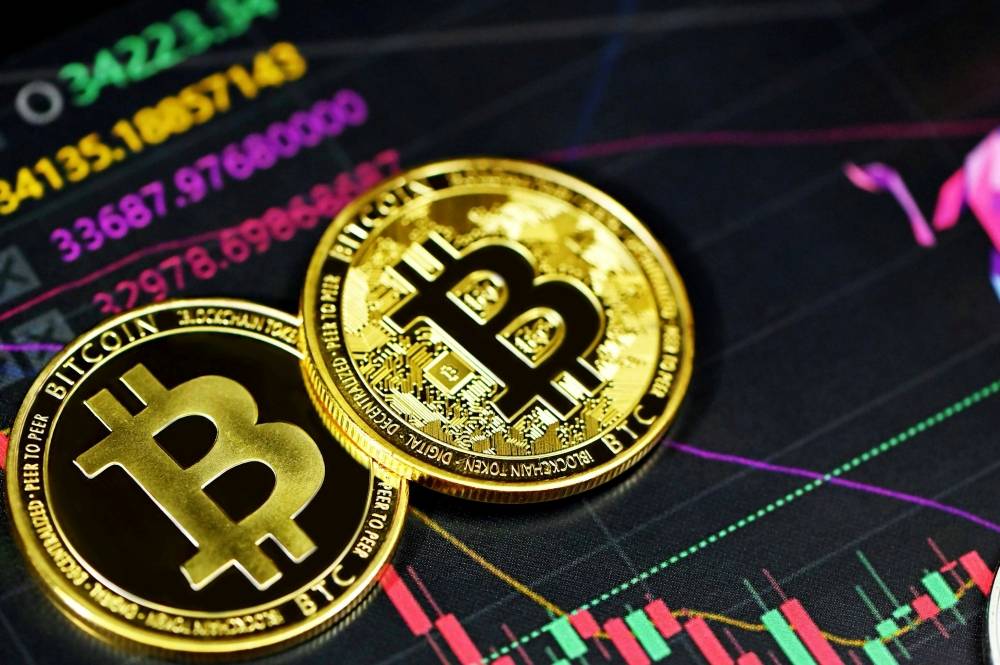The cryptocurrency Bitcoin is soaring. Its price has touched the $60,000 mark. What's happening? Are there limits to speculation? Thomas Romain, Director of Development for Bitpanda in France, explains.
How does a cryptocurrency like Bitcoin work? Its price? What is its value based on?
Bitcoin is the king of cryptos and represents more than 50% of the volume of active cryptos. Its activity thus determines the market for other known cryptos, such as "altcoins" (such as Ethereum or Solana). Bitcoin is the token or currency issued from the Bitcoin blockchain. Every day, very powerful computers solve complex mathematical problems (what we call mining) to obtain a block and an associated Bitcoin reward. Today, the reward for mining 1 block is 6.25 Bitcoin (or $375,000 with a BTC at $60K). Today, about 900 blocks per day are mined worldwide on the Bitcoin blockchain, and there are 19.6 million bitcoins in circulation out of the possible 21 million (there is a finite amount of BTC).
The price and value of BTC are determined by two variables: the law of supply and demand and the fact that its quantity is limited. Today, we are in an upward trend, and individual investors are once again interested in BTC and are buying. This buying pressure is driving up prices. BTC is increasingly seen as a safe haven asset, a kind of digital gold. States, traditional investors, among others, are accumulating large quantities of bitcoin, which is once again driving up prices.
How to explain the recent surge in Bitcoin, which has touched the $60,000 mark?
The recent launch of 11 Bitcoin ETFs in the United States has had a significant impact. These are billions of dollars in investments by institutional investors like BlackRock or VanEck that have been added to the market. This wave started in October/November last year and peaked in January. That was the first step. Today, the next milestone is the halving. From mid-April 2024, miners will only receive 3.125 BTC as a reward (a halving) for each block mined. As a result, there will be less production of BTC and less income for miners, and therefore BTC will become increasingly rare. As is the case for gold or oil, if there is less production, prices rise. During the 4 previous halvings, we saw a similar upward trend.
These valuation levels seem unreal and disconnected from reality... Cryptocurrencies are characterized by violent movements up and down. What trends do you see for the coming months?
This time, for Bitcoin at least, it seems different from previous bullish phases. Of course, we are never immune to a derailment (as can be the case with other types of assets) but we notice a sustainable growth. Since the end of 2022, BTC has been steadily growing and since the end of 2023, we notice a more significant but still measured increase in response to significant activity (the announcement of ETFs). We are no longer in the scenario where BTC gains 400% in 3 months but rather 160% in a year. I can't make predictions about the future, and I don't give investment advice, but I think this upward trend could remain relevant.
Do you think that cryptocurrencies will one day supplant national currencies by becoming reserve currencies?
Some governments are already doing this, like El Salvador, and let's not forget that the U.S. government also holds about $5 billion in BTC. States are interested in the topic (and are even trying to create the digital euro or digital dollar) but to replace fiat currencies with cryptos, I don't believe it. Not in the short/medium term anyway.
The story of BitcoinBitcoin is a cryptocurrency also called a cryptographic currency. In the case of the unit denomination, it is written "bitcoin," and in the case of the peer-to-peer payment system, it is written "Bitcoin." It was created by Satoshi Nakamoto. This person does not exist. It is actually a pseudonym used by the researcher or researchers who developed the cryptocurrency Bitcoin. In 2008, Satoshi Nakamoto wrote a white paper describing the operation of cryptocurrency. Nakamoto published the definitive reference implementation of the software in 2009. Bitcoin was officially launched on January 3, 2009. Several stock symbols represent it as well as in publications (see interview). These are BTC, XBT, ₿.
Please post your comments on:
[email protected]
 Politics
Politics








